|
Sometimes it can feel like you’re doing everything right and still not achieving the goals you want.
It can be frustrating to not see those results coming and that frustrating can lead to you wanting to give up. Sometimes it’s because your focus is in the wrong place – making it all about the scales. To a certain degree, they can be out of your control. What I like to do with clients is get them to focus on the behaviours they can control: - Eating – portion control, veg, lean meats, water, occasional snacks and treats. - Exercise – working out X times a week, being active outside of the sessions. - Mindset – practice flexibility, taking action, obstacle planning - Lifestyle – sleep, stress management - Consistency – doing the right things most of the times with some wiggle room to relax. Once you start to shift your focus onto the areas you can control and work on them, things like the scale weight and measurements usually take care of themselves.
1 Comment
“I've been told I shouldn't eat carbs after 6pm. Is this true?”
“I've been told I shouldn't eat carbs after 7pm. Is this true?” “I've been told I shouldn't eat carbs after 8pm. Is this true?” This is one of those eating myths that is thankfully starting to die out now. However, I still see this being asked a lot or comments where people are giving this advice as some gospel truth. And there is still a lot of unnecessary fear around carbs. The honest answer is No. It's not true. The fact different people will give you different time cut offs should tell you it’s likely going to be nonsense anyway. If you eat carby food at 5:30pm, let's say it is 300 calories worth. When that clock strikes 6:01pm, it doesn't suddenly double to 600 calories for the same thing. It is still 300 calories, all day long. 11am - still 300 calories 2pm - still 300 calories 7pm - still 300 calories 8pm - still 300 calories 9pm - 742 calories....just kidding, it's still 300 calories Just before bed – it’s still 300 calories What matters is how much you're eating overall on a daily basis. That matters far more than when you're eating. One of the few instances where something like a 6pm / 7pm / 8pm guideline can come in handy is if you're prone to over snacking in the evening. You eat a few snacks which acts as a trigger to eat some more. That sort of guideline can help with portion control if it is an issue for you. If it's not an issue for you, then you don't need to worry about it. So to sum up, it doesn't matter what time of day you eat. You can eat carbs when you it suits you. We all have stress in our lives
That stress can come from a variety of sources – work, family, relationships, finance, health etc Some of the sources can be considered good stress such as exercise. But stress is still stress on you. Now when it comes to stress, some of it is outside of your control. And some of it, you can work on controlling. Once you can start to control some of the stress in your life, you’d be amazed at how much better you’ll feel in yourself. I explained it to a client this way: Think of a jar that is full to the top with your stress levels. When anything else happens to increase your stress levels, it will spill over and get messy. However, once you deal with stress you can control, that level decreases and you now have more capacity to deal with any extra stress that comes in your life. Here’s what you can do: 1) Think about all the sources of stress in your life – if you’re not sure, google can help for ideas. Some you might not even realise. 2) List them all out. 3) Mark next to each one if you can control it or you cannot control it 4) The ones you can’t control, put them to one side. You can’t do anything with them. 5) The ones you can control, look at ways you can either reduce, eliminate or deal with them in some way. There’s too many scenarios to go into specific details in this post. Google again would be a good start point again “How to deal with… “. You’ll find identifying a few areas you can control and dealing with them will greatly help your stress levels which will positively impact your health. This is a genuine question I’ve seen in a group recently. I’ve paraphrased it slightly so it fits on the image better.
In short, the person has their fitness in place but their nutrition sucks. They were thinking about doing an “egg fast” or some type of juice for 3 days. Rather than outright answer it for the person “No, they suck balls. Just. Don’t.” I wanted to give them something more substantial to think about because there is a very common pitfall with this type of thinking. This was my response: “Jump starts can work in the short term as a motivation boost. The problem is they can be very short lived because they quickly become miserable. You also have to think beyond some sort of fast or juice. If you do that for 3 days and your nutrition still sucks, what is your plan for after that? Many people either don't have an idea of what to do so revert back to sucky eating or think a fast / juice / diet is the end game and once done can go back to eating how they were..... then wonder why they are back at square one. If your nutrition sucks, be more specific - why does it suck? Is it your knowledge around what to eat and how much? Cooking skills? Knowing what you want to eat but can't stick with it? Once you know why it sucks, you can ask more specific questions and get better answers. Really, nutrition is never going away, it's kinda a for-life type of deal when you think about it. Your best bet is to take some time to properly learn about nutrition now as you can then use that for life.” In sharing my answer with you here, I hope that if you’re considering something similar or have a similar mindset, it will put a few things in perspective about taking the time to properly sort your eating out so you don’t even need to think about crap like fasts and juices. This phrase makes me chuckle when I see it.
And it’s always a good reminder. For many people who want to lose weight, especially quite a bit of weight, you have to remember it took years and years for you to reach this point. You’re not going to undo all of that in a few days or a few short weeks. It will take months and in some cases years to get to where you want to be. And I say that for two important reasons: 1) Part of my job as a coach is to manage your expectations and be honest with you about it. I’m not going to b.s. you with lies and magical promises so I can unethically take your money (see below). 2) Once you know it will take time and effort, my hope is you will be more wary and skeptical about the next shiny fad diet or exercise (equipment, workout etc) that comes along, promising super-human results. Don’t let their clever marketing tactics take you money! Just remember – even if your goals do seem a long way off, stick at it and keep chipping away. You’ll be amazed at the progress you can make with consistency and effort over time. Oh... this is such a common trap that I see people easily falling into.
Then getting really frustrated with the lack of results So I want to help you out here: - Apart from water, green teas etc & black coffee, pretty much everything you eat or drink contains calories - Even food you know to be healthy... still has calories - Some of the healthy foods have ALOT of calories - Some companies are lying scrotums and market a food as "healthy" but is loaded with calories and only "healthy" by the flimsiest, narrowest of margins It takes me back to a conversation I had with a guy a few years ago who was struggling to lose weight. He told me he was eating healthy and drinking lots of water. He had porridge for breakfast. Lunch might be a sandwich, fruit and packet of crisps (a small treat which is ok). Veg and lean meats for dinner, cooked with spray oil so not over doing it or grilled. Have some healthy-fat nuts for a snack. You read that and you might also think "yep, that sounds pretty healthy to me." And on the face of it, it is. However, I probed a little deeper to find out how much he was eating: - Usually 2 - 3 bowls of porridge in the morning, with some added extras - Lunch was fine - Plenty of water during the day - Maybe snack on 1 or 2 handfuls of nuts daily - Dinner was a plate full of veg and meat, often heaped So from my point of view it was very easy to see that he was just eating too much food. Because all that food, even the healthy stuff, has calories. So whilst he was eating healthy food He was eating way too much of it. Eating way too many calories. So if you're struggling to make progress right now and you're convinced you're eating all healthy food then start to look at how many calories are in those foods. Then keep track somewhere and see how much you're really eating. Are you eating the rough amount of calories you thought you were or are you surprised how much you're actually eating right now? Fat burning supplements WON’T help you lose weight.
This is a question that I see and have been asked a lot over the years: “What fat burners can I take to lose weight?” The brutal answer is none. And this is for two reasons: 1) Fat Burners just don’t work. I know you want quick results and these supplements and teas seem like a quick fix magic bullet. But that is how those dodgy companies prey on you. They know what you want and they offer something too-good-to-be-true…. And it’s easy to fall for their cleverly crafted words and adverts. At best, fat burners will empty your wallet and give you some expensive pee. So please, don’t buy into those crappy pills and potions. 2) You need to get your diet and lifestyle in order to begin with. If your sleeping is shit and you’re feeling run down. Your eating is a mess and all over the place. You’re not drinking water. You’re not consistently being active. You know, doing the basics to help create a calorie deficit. If you’re not doing those and not making progress (measurements decreasing, weight decreasing, feeling better in yourself) then stop for a moment and honestly ask yourself what benefit do you think a fat burner would add to this? There’s no benefit to you at all. What you will also find is that if you start to work on the basics of what you need to do, you won’t even need to entertain the idea of buying fat burners because you’ll start to see results anyway. When any of us start a weight loss journey, we set out with high expectations of what we're going to achieve. But often times, along the way, things don't always go according to plan. You find yourself giving up. Probably heading back to square one. Feeling frustrated and annoyed.... waiting for the next shiny diet to come along with big promises. The weight loss goals can fail for a number of reasons. Here are 5 possible causes for you to consider. I see it a lot in fitness groups where it's so common to be told something like "cut out all carbs". There is such a misconception around carbs. They're not evil at all. And this goes for any food groups like fats, protein and even alcohol. I know that the media, diet culture and clueless celebrity “trainers” have done a bang up job of trying to make a particular food group the enemy. Yes, it can be easy to eat too many carbs. But it can also be easy to eat too many fats or too much protein and drink too much alcohol. Once you start to demonise a food group you build up a level of avoidance and guilt when you are so much as left in the same room as a plate of pasta. Which isn’t a healthy way to be with food. So here’s the flip side of trying to demonise food groups and trying to eliminate them… Why cut them out completely when you can instead learn things like: -portion control - dealing with cravings around them - remove the stigma you have with those foods I say this because food groups like carbs are never going away and it's very, very, very likely that if you've cut them all out... that you will go back to eating them at some point. And when you do, you’ll feel all kinds of guilt because you associate them with being “banned” or “bad foods”. BTW – nothing is banned or bad (unless there’s an intolerance or allergy), it can all have its place in your eating. If you take time to learn how to eat them and how much of them to eat you become educated and empowered when you want them in a meal or snack. You'll soon find that they're not scary, they're not to be feared, they're just a food group and that's it. Wouldn't you rather learn to eat them in a way which can still work for you and your goals? It is true that to lose weight you do need to be in a calorie deficit - this is where your body and your daily activities burns more calories than you consume through all the foods and drinks. Going on a very low calorie crash diet may work in the very short term as you see some results and motivation will be high. However, sticking to a very low calorie diet will also quickly wear you out. You'll soon feel run down and like shit. When you get to that stage, everything becomes harder such as going to the gym, going for a walk, moving around and dealing with the hunger pains. And that is how you start to let things slip and gradually return to your old ways and your old weight. Leaving you more miserable than before. I’m choosing my words carefully here because I want to be clear and I know people have a habit of only reading the parts they want – I know these diets can work for people for a short time period but I’m not advocating or promoting them at all. It’s something that is best done under medical supervision if you’re going to do it. Plus, in my experience people want to hold onto doing them way longer than they should do and it’s not sustainable due to the earlier reasons given. If you’re going to do it anyway, regardless of what I say, there are two options for you: 1) Do the diet for a short period of time and once you start to feel rubbish, switch to a more moderate calorie deficit rather than giving up and eating how you were before. 2) Use a more moderate calorie deficit approach.... yes the weight will come off slower.... but you'll be able to sustain that weight loss for a longer period of time. Ultimately, looking at playing the long game will produce better results for you. First off, I’m not saying cardio is bad or that it shouldn’t be done. I often like to go for walks, bike rides, use the rower and do some circuits – all of which are cardio. However, another common weight loss strategy is to do more and more and more and more and more and more cardio as a means to burning calories for weight loss. Cardio does burn a lot of calories. However, similar to a crash diet, you'll start to overdo it and not know when to pull back until it’s too late. If you keep doing too much you’ll either feel burned out and start to give up or you start to do too much and pick up a few nagging injuries here and there which then put you off. Speaking of crash diets. It's also really common to see someone go on a crash diet AND go overboard on the cardio. This is a bad idea. Anything beyond the very, very short term - you'll feel really shit really quickly and not be able to sustain this. It is a recipe for disaster. Cardio is a useful tool to help with weight loss but: - it shouldn't be your only tool - should be kept in check so it's not over done. i.e. mix up low intensity with high intensity with very low intensity - you shouldn’t neglect your eating to help support your goals as well You've set yourself a goal to lose the weight and get in shape.... ...awesome... ....and then.... -crickets are chirping- It's great you want to lose weight or want to improve how you feel, but you need to set up a plan on how to achieve this. It doesn't have to be some super detailed plan… unless that works for you You just need to have some sort of plan or idea of how you’re going to do it. Because unless you actually DO something to move yourself towards your goals, it won't happen by magic. You need something that helps you to figure out how you will get from where you are now, today. To where you want to get to, what you want to achieve. It would be like waking up one morning and deciding you want to travel to ….. somewhere. You don’t know where the place is. What it’s like. Or how you’re even going to get there. But you decide you are going there and so you set off. As you can imagine it would be one big hap-hazard journey and full of frustrations. Compare that to waking up and knowing where you are. The place you want to get to. Then mapping out a general plan of how to get there. For weight loss clients, I like to use my 4 pillars approach to figuring this out - 1) Working out & being active; 2) Nutrition & Eating Skills; 3) Mindset & Accountability; 4) Rest, Recovery & Lifestyle Map out a general plan of how those 4 areas can help my clients to reach their goals and work that plan. Have a think about those 4 areas and what you could do to move towards your goal. Then write the ideas down and make a commitment to following them. You've worked hard, stuck to your plan and achieved your goals!
That is incredible work and you should be super proud of what you have done! And now what? Will you go back to your old lifestyle? Will you continue to maintain doing what you're doing? This is an important and often over-looked area. So many times I've seen something along the lines of "I did the XYZ diet and lost 20 lbs. Then I stopped and it all came back." There is this idea that if you work super hard to achieve your goal you can then stop and just go back to doing what you were doing before. Often times, this is because you’ve forced yourself to follow a diet or training plan you didn’t like and couldn’t wait to finish. Rather than focus on sustainable habits and eating. As you get close to achieving your goal, think about how you will work on sustaining all that progress, hard work and effort. Don't do yourself an injustice by stopping everything you've done to reach that point and going back to what you were doing. If you do just go back to your old lifestyle, old habits, old way of doing things, I promise you that you will likely gain it all back, maybe more and I would truly hate that to happen for you. That's 5 signs which could strongly indicate that your weight loss goal will fail. If any of these resonated with you and you want to learn how to break that cycle and how to deal with each of these areas then get in touch today and I'll see if I can help you. Go to this link, fill out the form and book in your free consult call https://www.joncoulson.co.uk/apply-here.html Do you ever remember seeing a cartoon or a comedy sketch where they dangle an enticing treat in front of someone…. Trying to get them to catch it….. but knowing they never will.
It’s pretty cruel when you think about it. Dangling some ideal in front of someone, knowing they’re never going to reach it. It’s the carrot and stick approach. But they’ll almost send themselves crazy trying to reach it. Now replace that carrot with the word, the idea, the concept of “Perfection” That everything you do must be perfect. It has to be perfect. Nothing less will do. It is so easy for you to fall into this thinking when you’re trying to lose weight. “My diet has to be perfect, absolutely no junk food, all healthy stuff from now on” “I have to exercise every day.” “I will always go to bed at 10pm and sleep 8 hours” “Urgh Christ, I’m never drinking again…That’s it for me” And you go about giving yourself The. Most. Perfect. Routine. In. The. World. Ever. For about 1 week. Some blip or situation happens. Then it slowly falls apart and you feel crap and give up the next week. This is why aiming for perfection is never going to be a good idea. I was listening to a podcast the other day where someone worked with Miss Fitness USA. You’d think she’d be perfect all the time. Nope. She admitted to never being perfect and messing up all the time. If she’s not perfect then why are telling yourself you have to be? Instead of aiming for perfection, work on being ‘good enough’ Your eating doesn’t have to be perfect. It just has to be good enough to get you results. Your exercise doesn’t have to be perfect. It just has to be good enough to get you results. Your drinking, sleeping, general activity, lifestyle doesn’t have to be perfect. It just has to be good enough to help you get the results you want. So drop this idea of being perfect. Instead look at what you can do that’s good enough to get results and work on your ability to get on with that overall plan. When you hit some blips, handle them and keep moving on. I know that this guide is going to be massive. But also exceptionally worthwhile in helping you to figure out a goal such as for weight loss and get a starting plan in place for what you need to do. So honestly, I would not suggest trying to read this all in one go. I would say to bookmark it and work on each section at a time. 1. Why Goal Setting Is Important You might have already seen a lot of goal setting posts. They tell you how to set SMART goals (I will in a future post) but they rarely tell you why it is important. Especially why correct goal setting is important to your weight loss goals. So here are some rough stats: - 25% of people give up after the 1st week - 60% of people give up within 6 months - 80% of people give up before the year finishes (I’ve seen higher stats too) -95% of people who lose weight on a diet regain the weight There are many reasons why the stats are so high from not setting your goals properly through to not knowing how to deal with issues as they arise and then giving up. I genuinely don’t want you to become one of those stats. I want to see you not only reach your weight loss goals but maintain it afterwards because yo-yo dieting is miserable & frustrating and your own health & happiness is way more important. This is why I will provide you with information and strategies to help beat these stats. 2. Think About What You REALLY Want To Achieve In the previous post I gave you some stats as to why setting the right goal is important. I think a lot of goal achieving is cursed from the start because: 1) You Don’t Spend Time Thinking It Out Don’t jump into specifics yet, let’s start with broad strokes. What do you want to achieve? No right or wrong. No traps. Only what you want to achieve. It’s easy to automatically say “I want to lose weight” because… Well… That’s what you’re meant to say at New Years, isn’t it? When really… You don’t give a shit about losing weight right now. In that case, don’t make it a resolution. Don’t stress out on something you don’t care about and then feel crap for giving up on it. I mainly work with weight loss clients, it sounds weird for me to say. However, with all the will in the world, the tools and techniques I can provide, if you really don’t want to lose weight I cannot make you. Down the road you might want to do this in which case cool, message me when you’re ready. ACTION POINT: Sit down and think what you want to achieve. Don’t focus on what you *think* you should say, just want you want 2) Your Goals Are Not Set In Stone You’ve set your goal. You’re going to lose 4 stone. That’s it. Done. Now you’re in this mindset of ‘you achieve 4 stone weight loss or you give up completely.’ I’m here to tell you that if you found your goal was too tough or things get in the way which means you won’t reach it…. You, as an adult, are entirely allowed to scale and adjust your goals accordingly. I think this point is VERY, VERY overlooked because of how we fall into rigid mindsets. We never stop and think “Ok, I know I won’t lose 4 stone so instead of giving up completely, how about I make my goal to lose 1 stone? I can reach that!” Instead we go “I’ll never lose 4 stone, what’s the point? I give up completely, where’s the Dominoes menu?” TO CONSIDER: Set your goal. If it’s not working out as planned, adjust it. 3. SMART goals for weight loss In the previous step, I gave the advice to think about what you really want to achieve. Thinking in broad strokes so you have a general idea. The next step is to run it through the SMART framework. When I left the corporate world in 2013, it’s something that came with me as I found using SMART type goals really helpful – nearly 8 years on and I still use this framework which is a strong sign it should help you with your goals too. S = Specific = This is where you can pin down what you really want. For example from “lose weight” to “lose 2 stone” or “get fitter” to “run 5km” or really specific “run 5km in X time” M = Measurable = When you set a goal, can you write down where you are right now, where you want to be and somehow track progress? If you can’t then it’s likely the goal isn’t measurable. Using the 2 stone example, you would know if you weigh 12 stone right now and can measure your weight loss as it happens. A = Achievable = Is it something you believe you can do. For example running 5km is possible. Running a world record 5km might be too much of a stretch for now. R = Relatable = Is your goal linked to what you want to achieve? If you want weight loss, your goal should reflect that. To put it another way, if you want to run 5km, you wouldn’t set a bench press personal best as your goal. T = Timely = Have you set a deadline for achieving the goal. The idea is that is creates a sense of urgency for you to reach that goal. However, recently I have moved away from setting deadlines or at least hard deadlines. I will cover this more in a later post as to why these can work against you. Using this frame, the idea is to transform your goal from “I want to lose some weight and tone up” to “I want to lose 2 stone and 4 inches off my stomach by 1st June”. Hopefully you can see it will give you something more definite to aim for, add more purpose to your goals. ACTION POINT: Have a look at the goals you want to achieve in 2021. Do they seem vague or specific? Use SMART to help you. 4. Your Why = More Meaning = More Chance Of Achieving I always felt that SMART, whilst useful, was lacking something. And that was adding a why An emotional element. It makes the goal much more important to you. The more important you can make a goal to you, the better the chances are you will stick to achieving it. It has meaning now. A simple way to work through this process is to literally keep asking yourself “why?” until you run out of answers and uncover the real reason. For example, you might want to lose 2 stone but that is the outcome. The real reason is why you want to lose the 2 stone in the first place. The process would go like this: “I want to lose 2 stone by 1st June” Why? “Because I feel fat and unfit” Why? “Because I have my wedding coming up and I want to look great in my wedding dress” This is a short example and it can sometimes take up to 7/8 times of asking to start uncovering the reason. Once you find your reason, you can then add it to your goal “I want to lose 2 stone by 1st June because I want to look amazing in my wedding dress.” Uncovering that reason and using it as a reminder for why you are doing it can be a powerful motivator for you taking action. Something very important which is often overlooked when you are being asked to uncover your why…. Your why is entirely personal to you and what you want. There are no right and wrong answers because it’s your reason for setting the goal. There can be a tendency to feel morally obligated to give a prim & proper why i.e. “because I want to feel fitter and healthier.” But If your real reason is more along the lines of “so I can look hot and have more sex” Then use that as your reason. You don’t have to tell other people that is your real reason (as it’s personal to you) but at least be honest with yourself and own that reason. It will help you far more with sticking to achieving your goal. ACTION POINT: Sit down with your goal or goals and work out the real reason WHY you want to achieve them. 5. ADD THE HOW Hopefully you have thought about why you want to achieve a goal that is important to you. That’s not the end of it. In order to achieve a goal it doesn’t go like this: a) You set a goal you want b) Something magical happens c) Goal achieved, hurrah! Just because you’ve set a goal, it won’t suddenly happen. You need to work on it. You must start figuring out those first steps to take to start moving towards your goal. This is the how: “How will I achieve X?” This will form the starting plan for what you do next. Even if that action isn’t perfect, taking any action towards your goal is better than taking no action. You can always correct as you go along. You need to make the how relevant to you, your goals & your abilities right now. Think of the ‘how’ as a series of behaviours and habits you should look to adopt as they will support the goals you are aiming for. For someone who would like to lose weight, the successful types of behaviours are along the lines of: - Aim to eat 2 or more portions of fruit or veg most days - Aim to drink at least 1.5 litres of water most days - Aim to be active for 30 minutes most days - Aim to exercise at least twice a week - Aim to sleep 7 hours most days This is a general idea, if that looks daunting then think about what you could do right now. For example, could you eat 1 extra portion of fruit or veg most days? Could you drink 1 extra glass of water? The best possible tip I can give you is to strongly focus on the behaviours that support your goal and work on them as best you can. You keep the goal the goal, but the behaviours are what moves you from where you are now to where you want to be. You may have also noticed that I wrote “most days” on a lot of those habits. Don’t expect 100% perfection with everything, every day. Aim to do the right thing most days and you will make great progress without the pressure of thinking you’ve failed everything if you have a bad day or two here and there. ACTION POINT: Sketch an outline of the steps and actions you will take to achieve the goals you want 6. Upskill Your Behaviours For Better Weight Loss In the previous section, I gave you tips on how to identify behaviours to support your goals. What is often overlooked is getting started with the behaviours in a way that doesn't overwhelm you and lead to you giving up. Often, its a series of skills you need to learn. Building the skills increases your competency and confidence. This improves your willingness to stick to the behaviours as they become easier to do. Let’s take a behaviour such as “I will eat 2 portions of veg every day”. There are skills that underlie this, such as: - Know how to prepare & cook veg - Know correct portion sizes - Able to plan your meals Some skills you might already excel at. Some you may need to work on. The ones you need to work on – pick just 1 skill and practice it until you feel confident. Then move onto the next one. Repeat until you are able to confidently do the behaviour to support your goal. You might sit there and say building skills is tough or takes too long Well, nearly everyone reading this has passed their driving test. When you first sat in the car and started driving, you weren't as good or competent as you are now. It took time, practicing a series of skills, and learning from mistakes to be as good (hopefully)and confident as you are now. Building the skills to achieve another goal, such as weight loss, is no different. Learn, practice, make mistakes, continue practicing and learning. ACTION POINT: Look at the behaviours you identified. Do you feel confident you can do them? If not, break the behaviours down into a series of skills and figure out what you need to practice. 7. Increase Your Chance To Succeed Did you know that roughly less than 20% of people write down their detailed goals? Did you also know that writing down your detailed goals increases your chances of succeeding, on average, by 42%? Think about that - over 80% of people don’t write down the goals they’ve set for themselves and would massively increase their chances of success if they did. I think one of the most common reasons people don’t achieve their goals is because they don’t write them down… … and then simply forget. I’ve seen it numerous times where someone has set themselves a goal and 2 - 3 days later they are doing the exact opposite of what they said they we going to do. They simply forgot about it. There is some neuro-science shenanigans going on behind the whole process of writing your goals down. I won’t pretend to understand it all but the general concept is two fold: 1) You create external, visible reminders (i.e. post it notes, sheet of paper, note on your phone / computer) which you keep seeing. 2) It helps your brain to process and remember the information better I don’t want you to be like those people who simply forget. I want you to succeed with your goals. ACTION POINT: Over the past several posts, I have laid out how to build your goal into something detailed with a starting plan. I want you to take all that information and write it down and keep it as visible reminders for yourself. Personally I like using post-it notes. I generally have one in my wallet, in my phone case and slapped on my whiteboard behind my laptop. It helps to keep reminding me of what I want to achieve and why. This method will work for you too. 8. What Gets Measured… Gets assessed. Have you ever heard that term before? If you think back to SMART, one of the important ideas was to make your goal measurable. The reason for this is if you can make something measurable, then you can track and monitor it to make sure you’re on the right course and adjust if needed. For example, you want to lose body fat so you could easily track your weight and some body measurements. If you wanted to track the behaviours and action you need to take to lose weight, you could give yourself a tick each day you do them on a diary or tracker. I think tracking and monitoring is important for a few reasons: - We have been shown to have poor memory recall so it’s easy to trick yourself into thinking you’ve been doing the right actions when that might not be the case. However, tracking tells you if you’ve been doing the right thing most of the time. - Linked to the above, if you can visibly see where your behaviours and actions might not be as frequent as you thought, you know to work on improving them. This leads to better weight loss for you. - Seeing those ticks add up motivates you to keep that momentum going. A personal example for me. I’ve been doing daily lessons on Duolingo. I wanted to hit 10 days in a row. Then 50. Then 100. I’m currently on day 174 and would hate to see that broken so I’m motivated to keep the practice going. I’m not saying being super obsessive over every little thing, you need to pick and choose the main areas / metrics / behaviours / actions for you to track. ACTION POINT – Determine what you want to measure and track. Create / find a tracker to monitor them. Start ticking those boxes. 9. Recap and Putting It All Together
I appreciate that there is a lot of information in this post. I wanted to recap and show you how it all fits together with an example: 1) Think about what you really want to achieve 2) Apply SMART to your goal to make it Specific, Measurable, Achievable, Relatable & Timely 3) Think about Why you want to achieve your goal. What is your reason for doing it? 4) Look at How you will achieve your goal. What do you need to do? 5) What skills do you need to learn or practice to reach your goal more easily? 6) Write your goals down. Keep visible reminders. 7) Think about what to track and measure and then monitor Now, I know you might be thinking that looks like overkill. But here’s how that looks in practice: If your goal is: “I want to lose weight and tone up”. And you apply the above steps, it would transform your goal to: “I want to lose 2 stone and 2 inches off my waist by 1st June because I am getting married in June and want to look amazing in my dress for my big day. To do this, I will focus on the following behaviours: - Exercise 3 times a week - Be active around 30 minutes most day - Eat at least 2 servings of veg most days - Drink at least 2 litres of water most days - Aim to sleep 7 hours most days I know that eating correctly is a weak point for me so I will work on the following skills: - Learn about correct portion sizes - Practice eating slowly and to 80% full - Practice planning out my meals ahead of time I will track my weight, waist measurements, how many times a week I exercise and how many healthy meals I am having. “ Then have that information noted down a few times where you can keep seeing it. Hopefully you can see how these steps take your goal from something very vague to something very meaningful to you. Then how it makes it so much clearer for what you need to do to achieve your goal – it gives you a plan to follow. If you’re still needing help with setting and then achieving your goals, I have spaces available for some new clients. Drop me an email saying “Goals” if you want to know more. |
AuthorThis is my, mostly, Personal Trainer musings and information which I hope you'll find helpful! Archives
May 2021
Categories |
Support |
© COPYRIGHT 2020. ALL RIGHTS RESERVED.
|
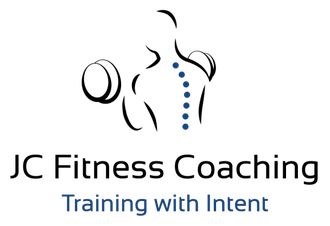
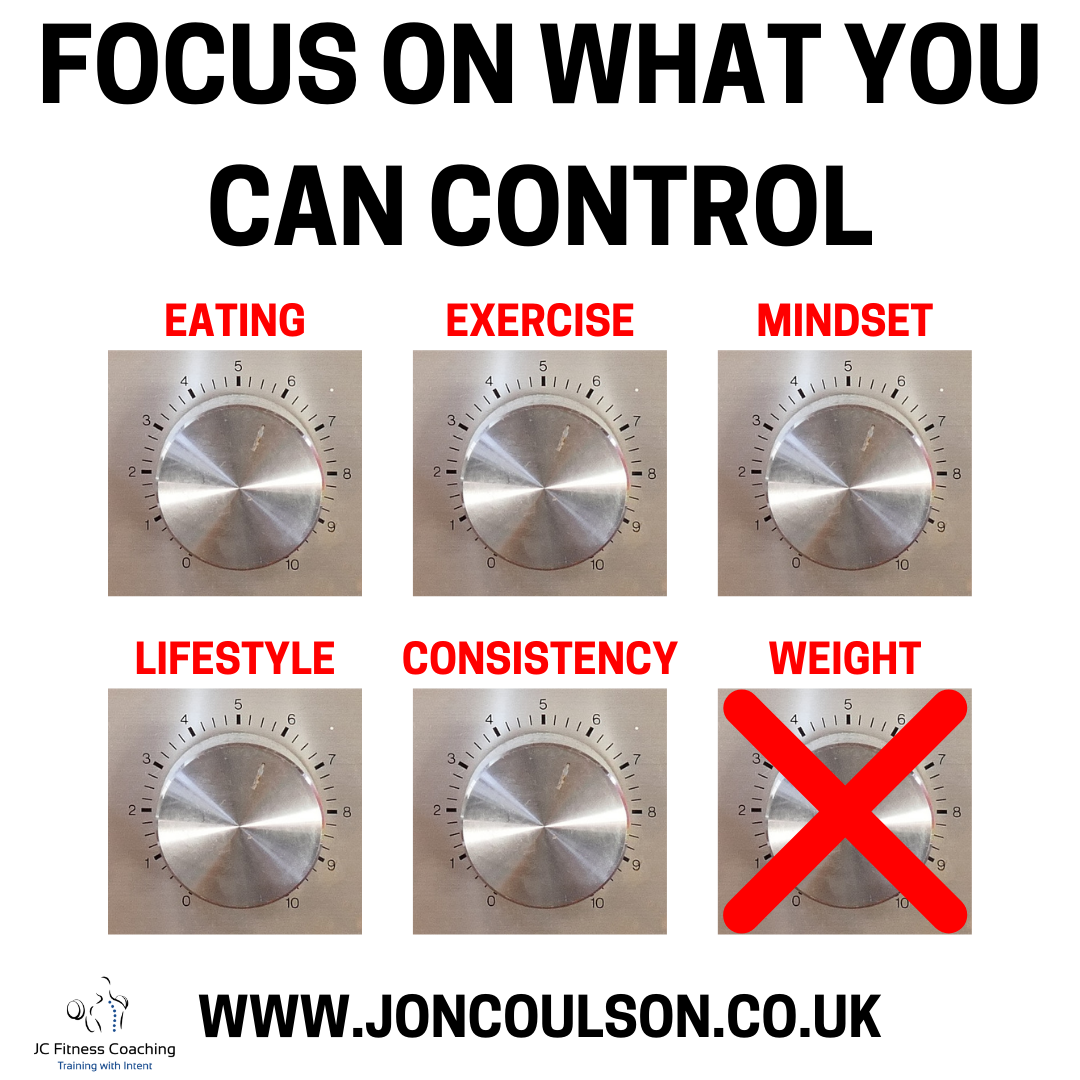
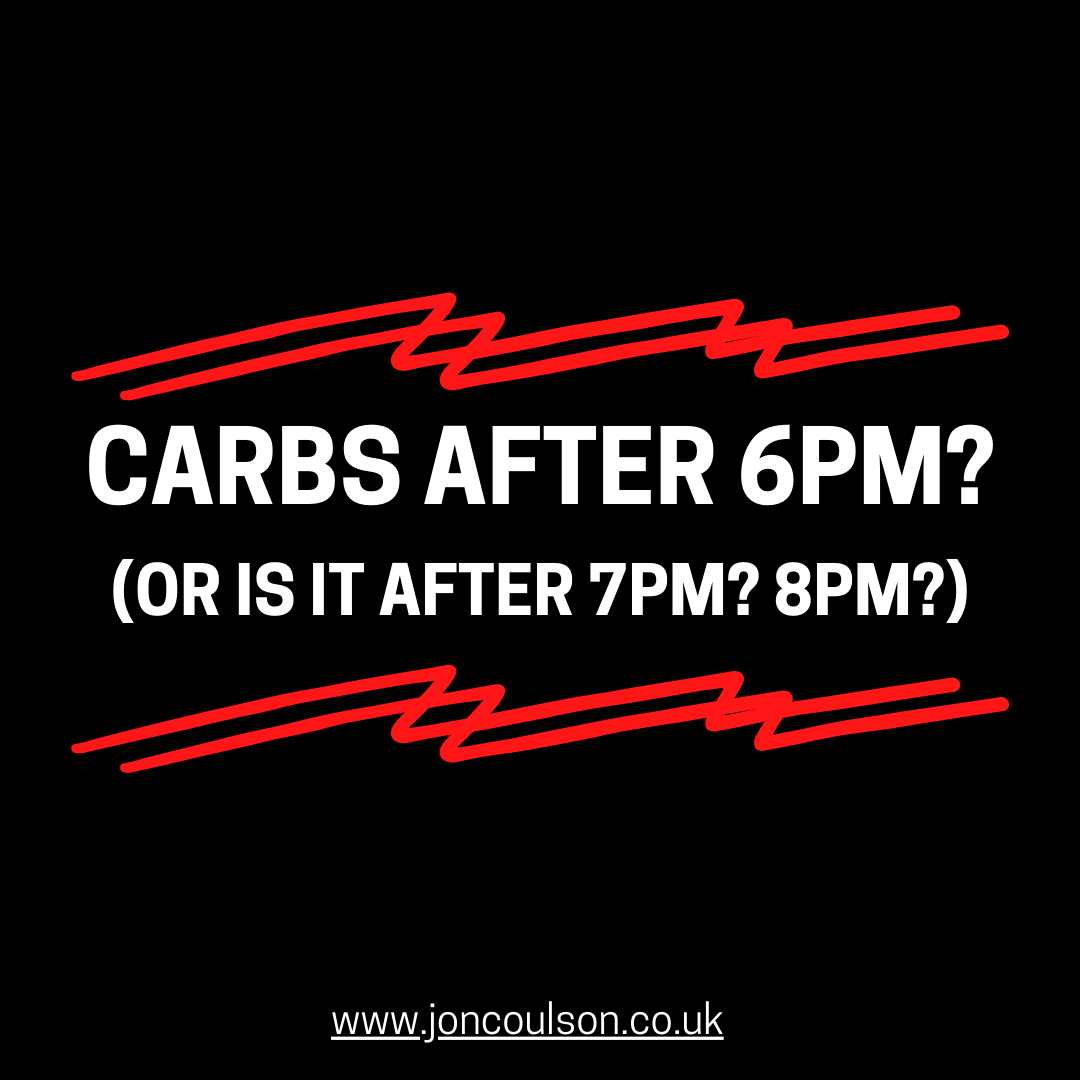
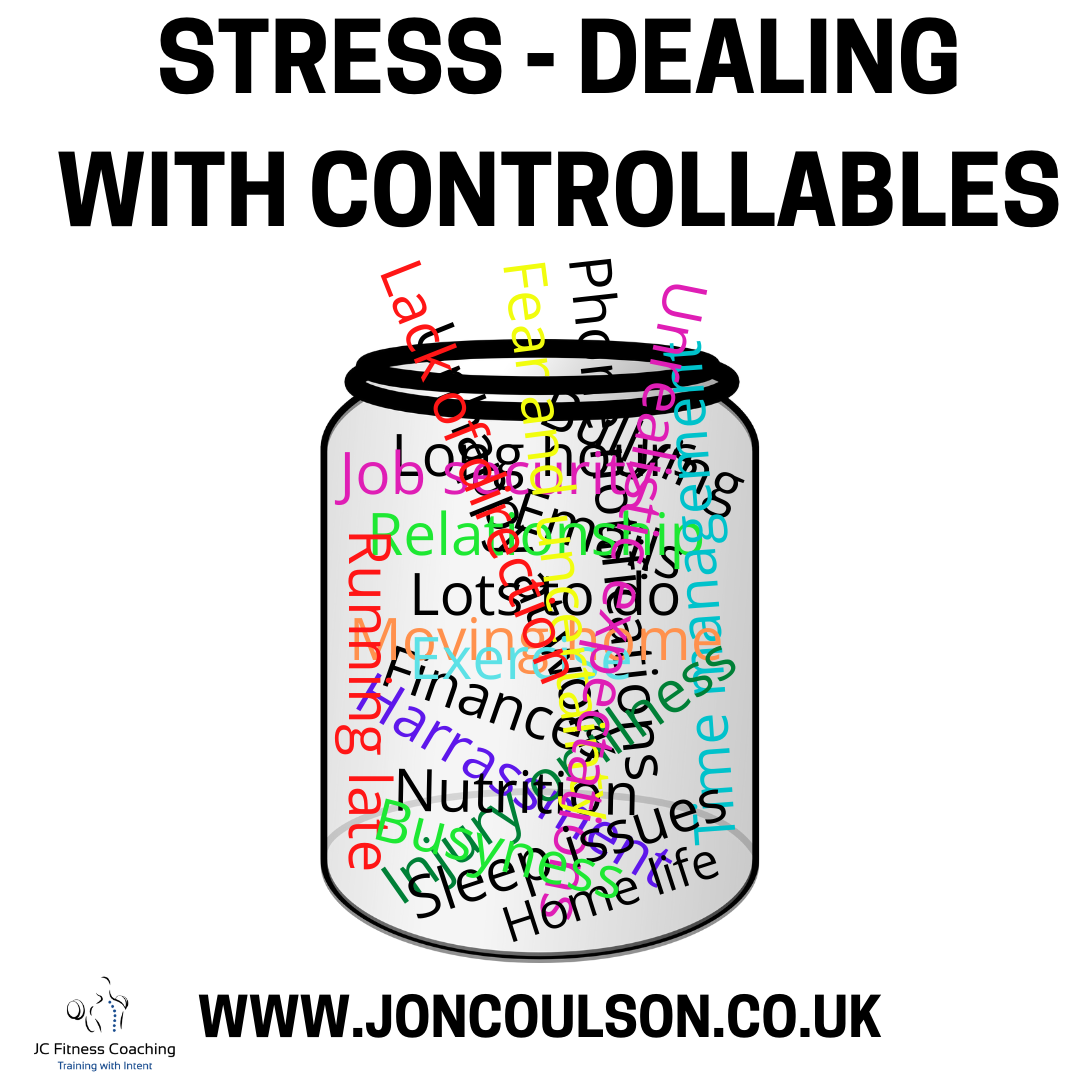
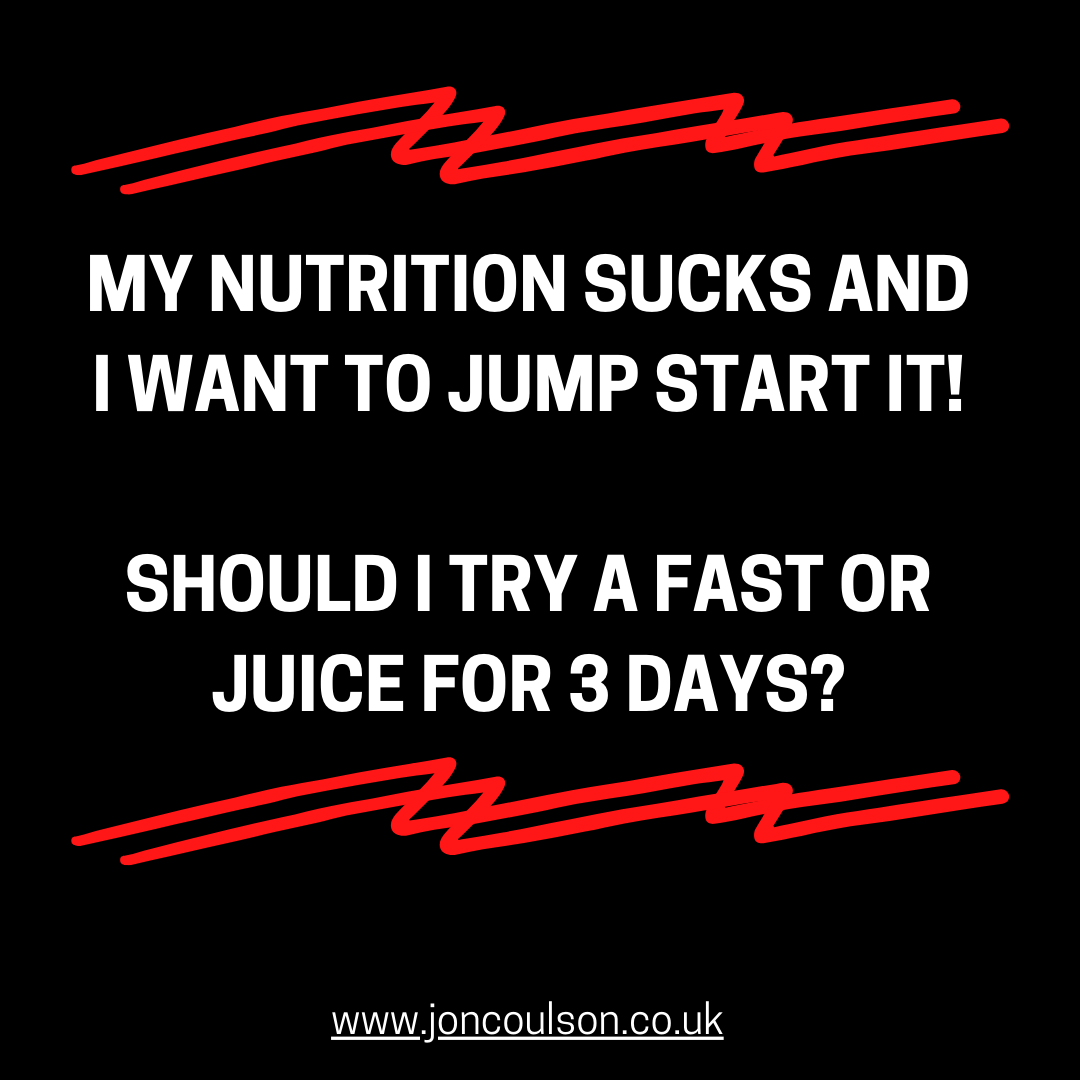
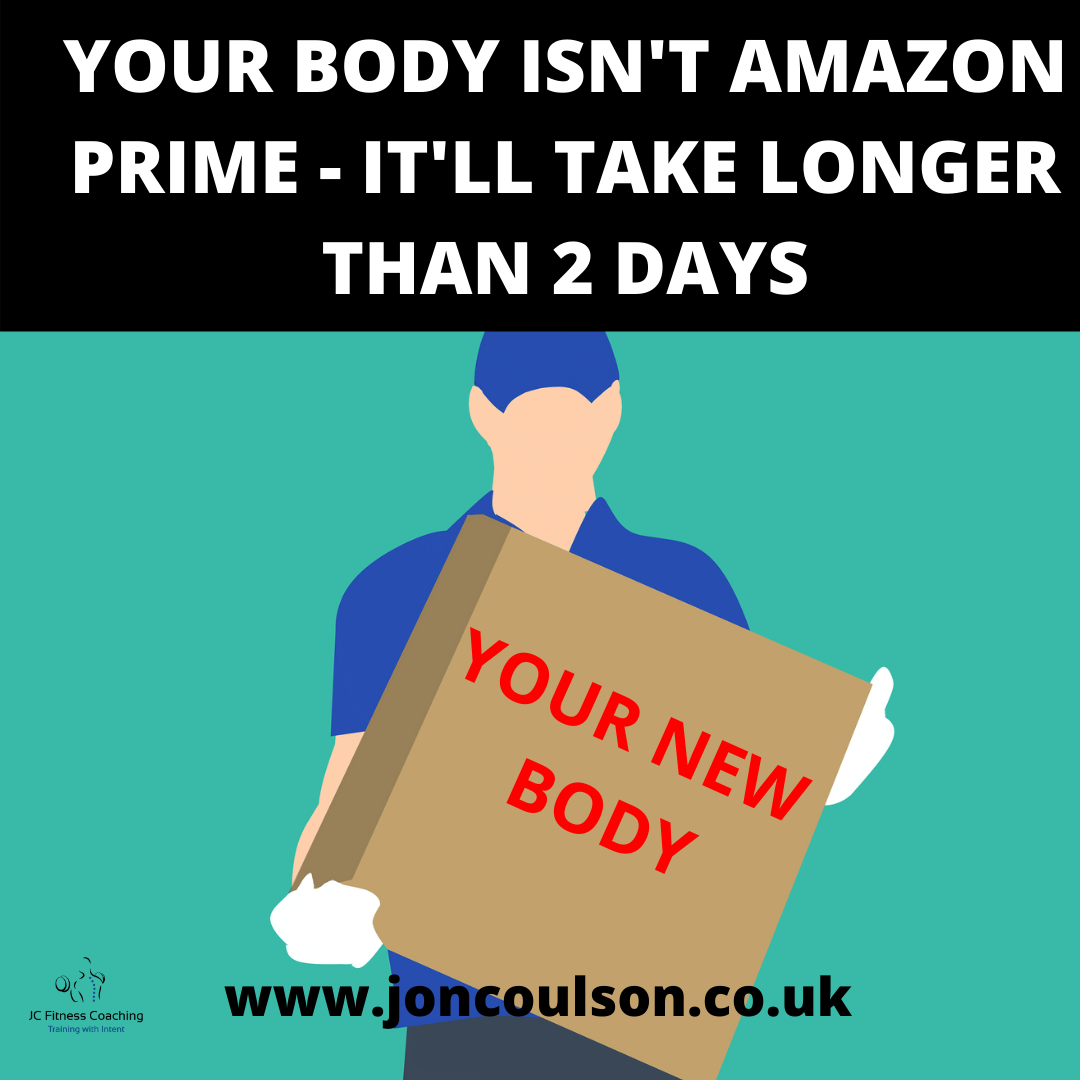
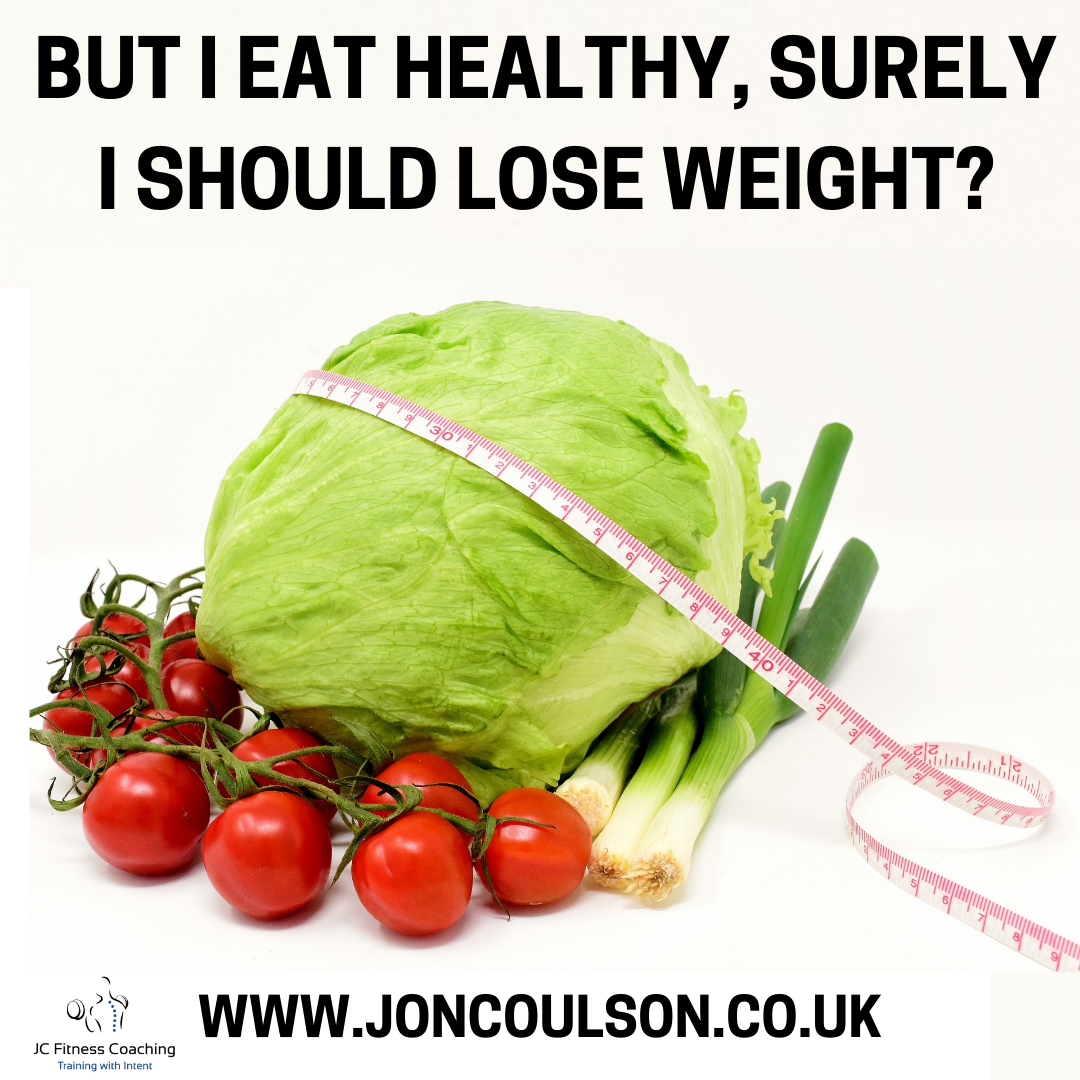


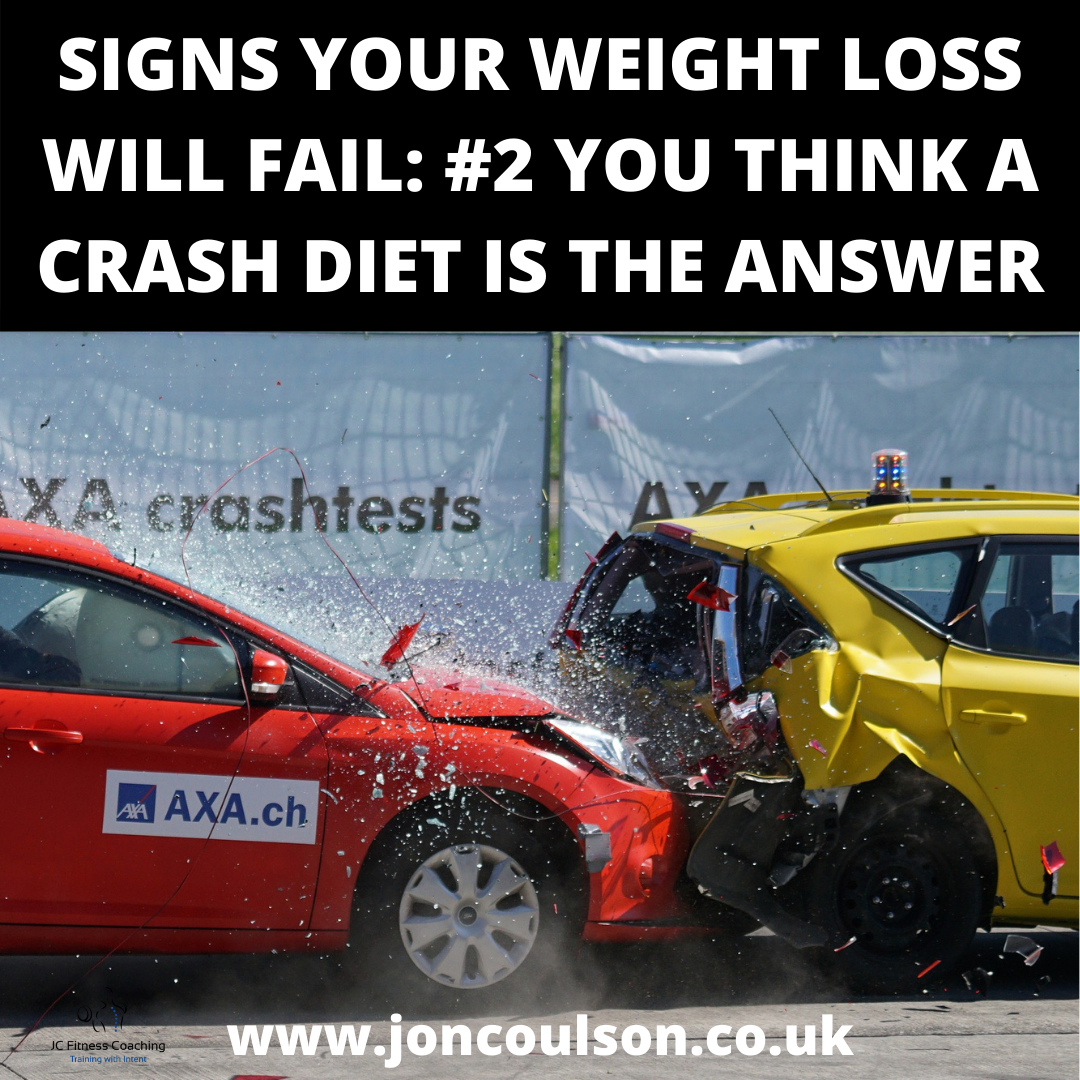
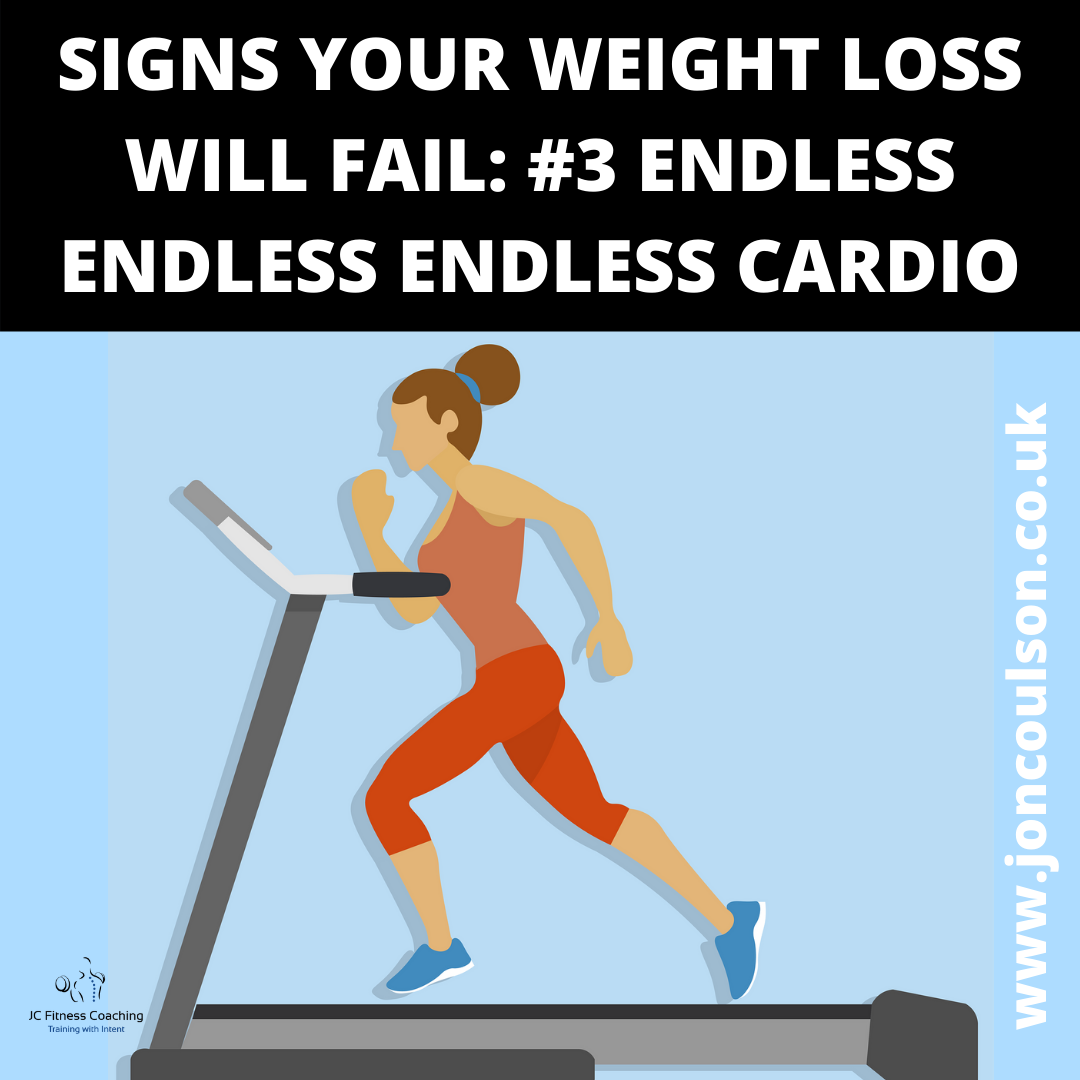
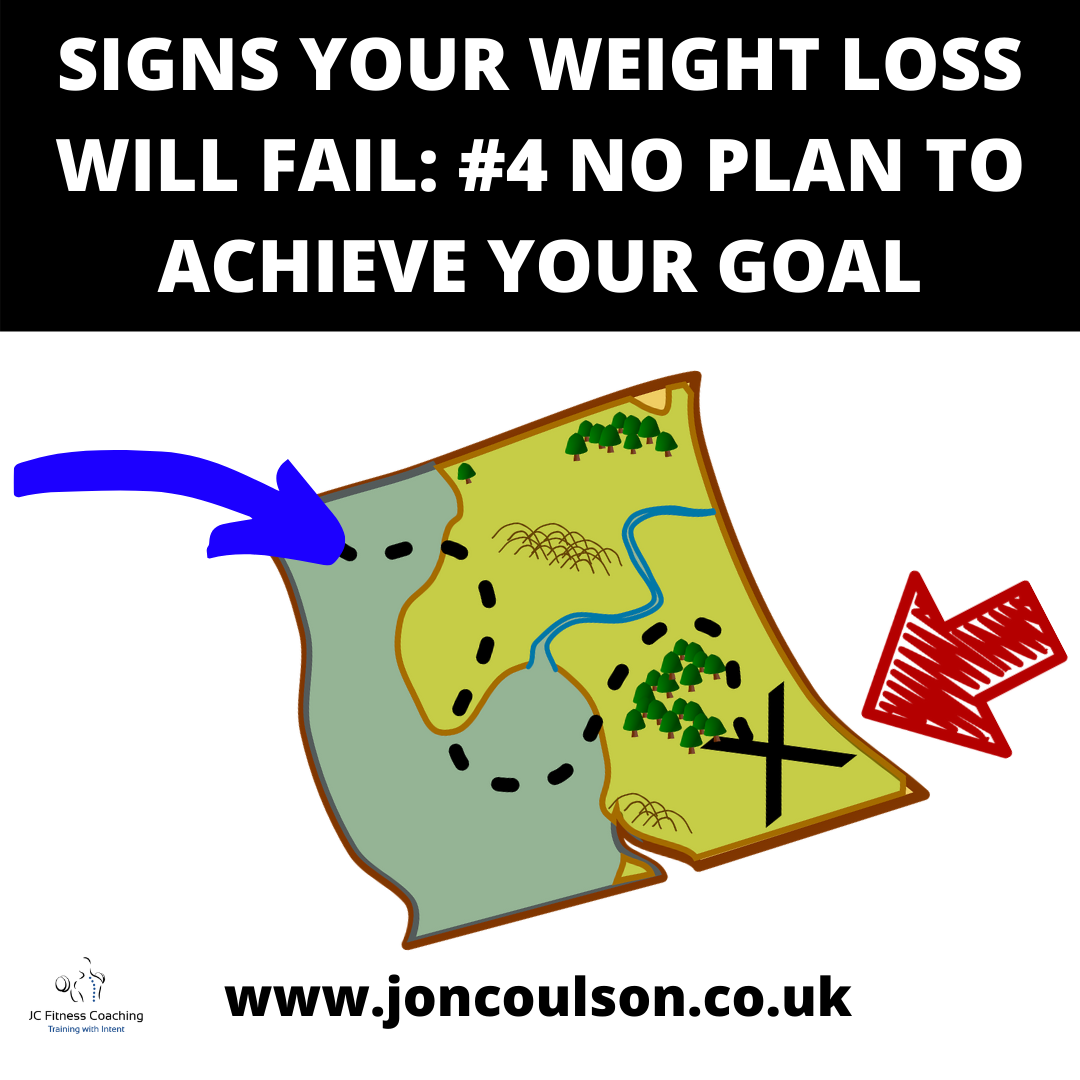
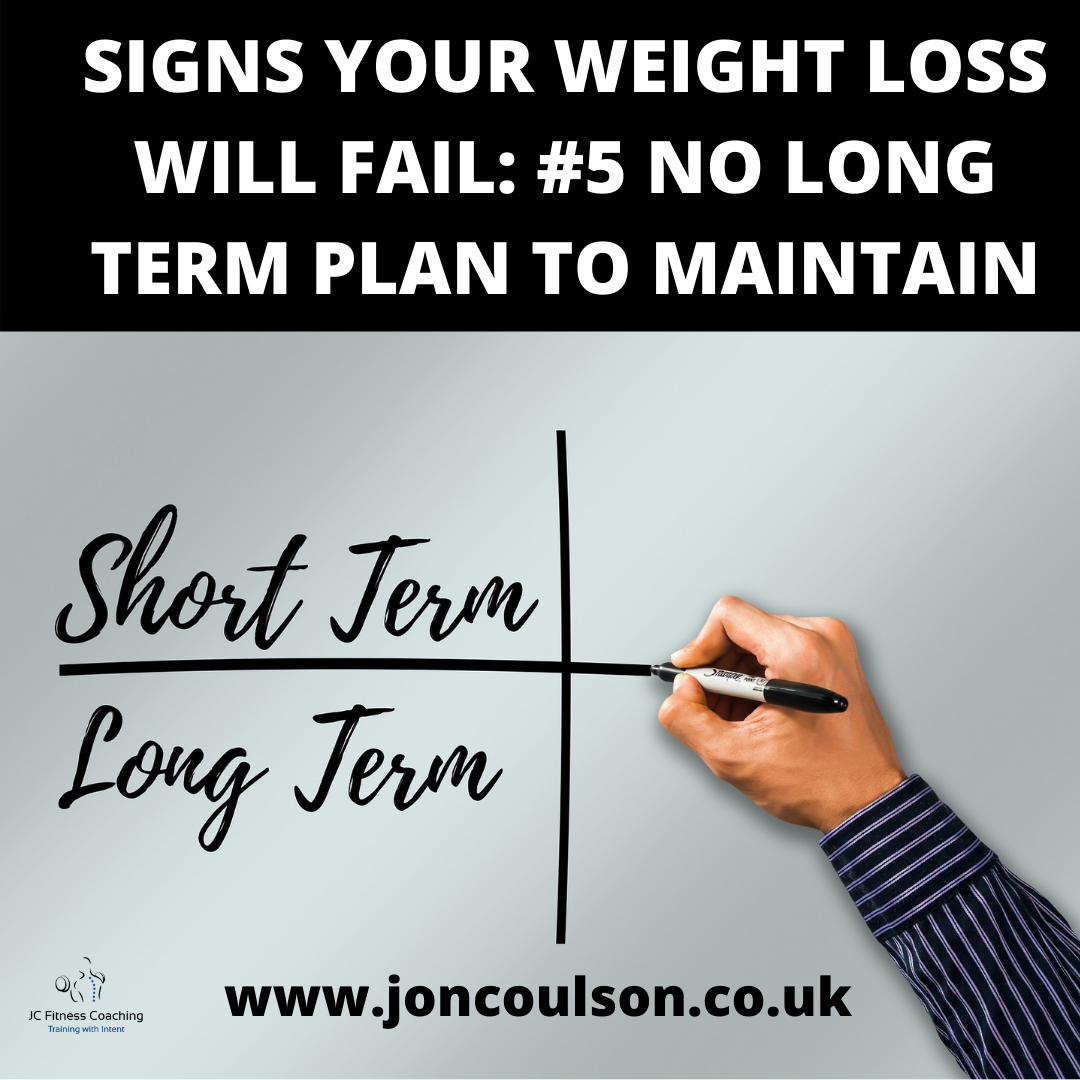
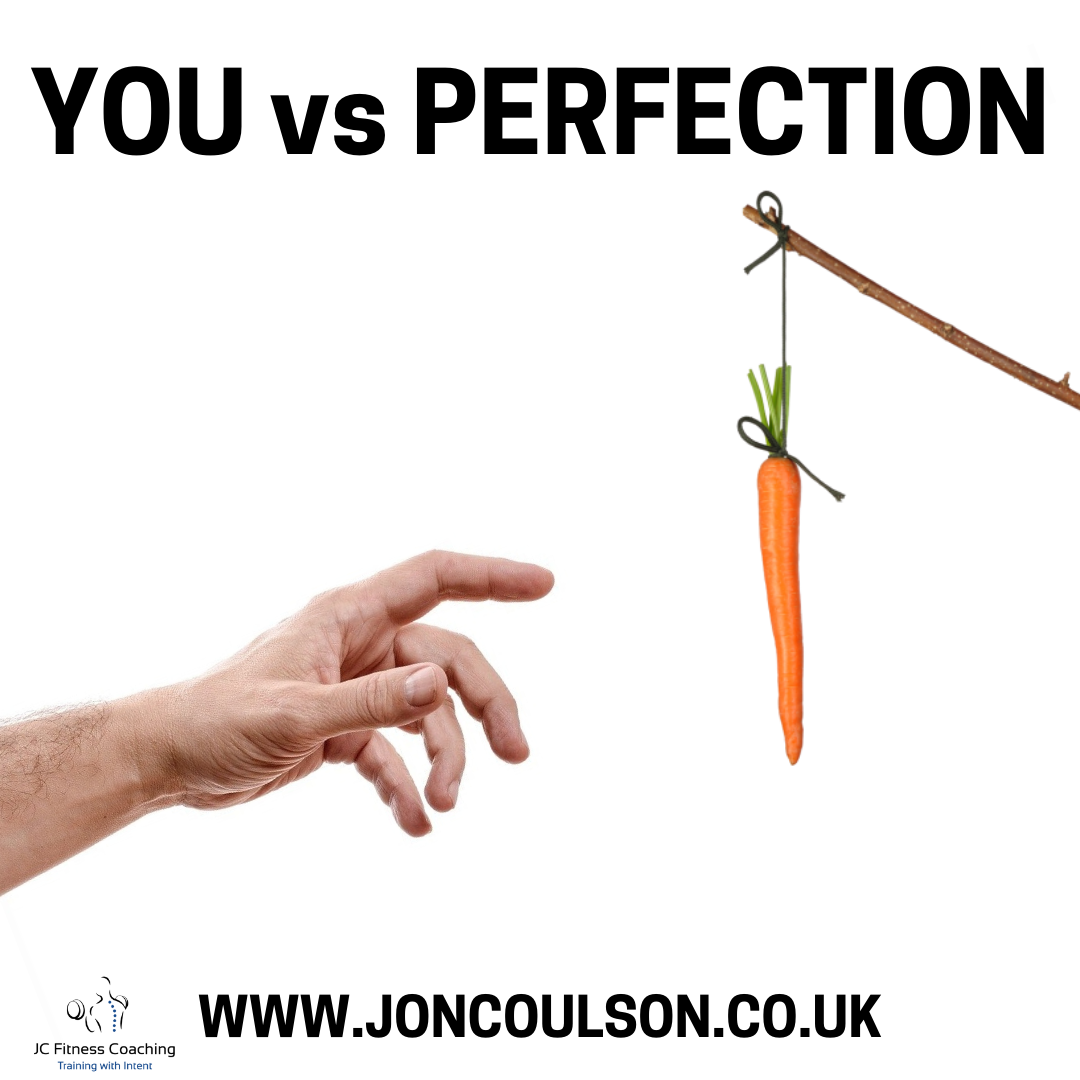
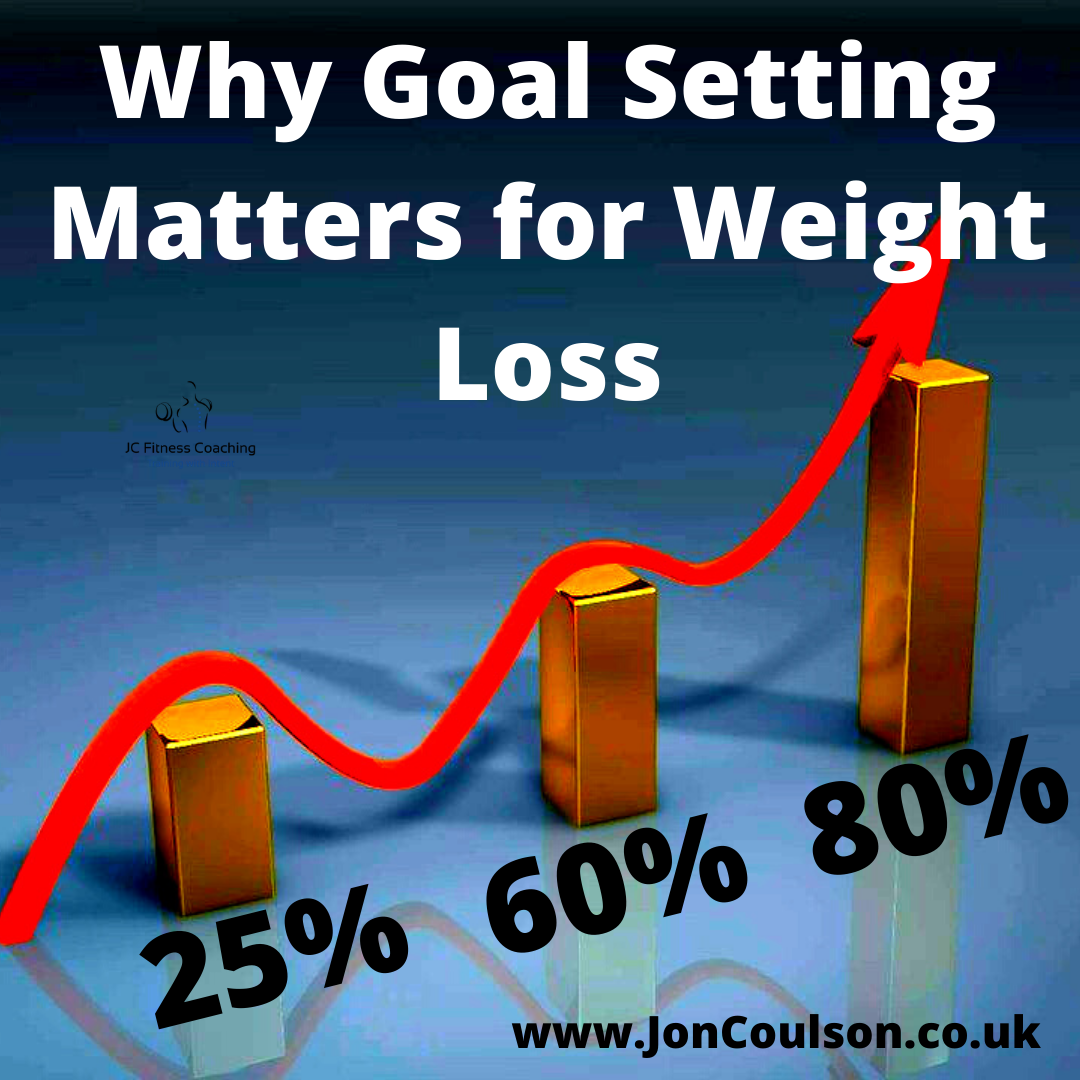
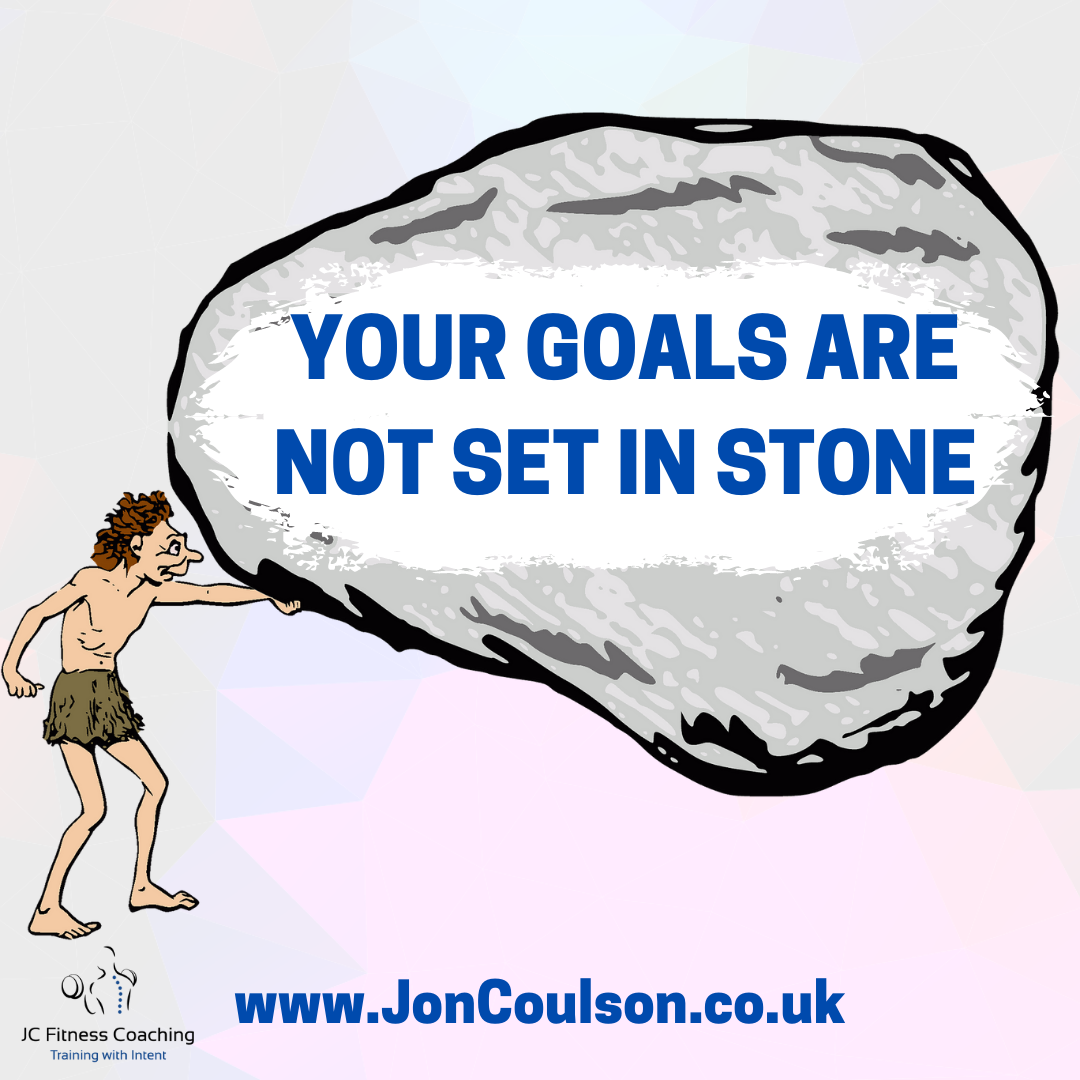
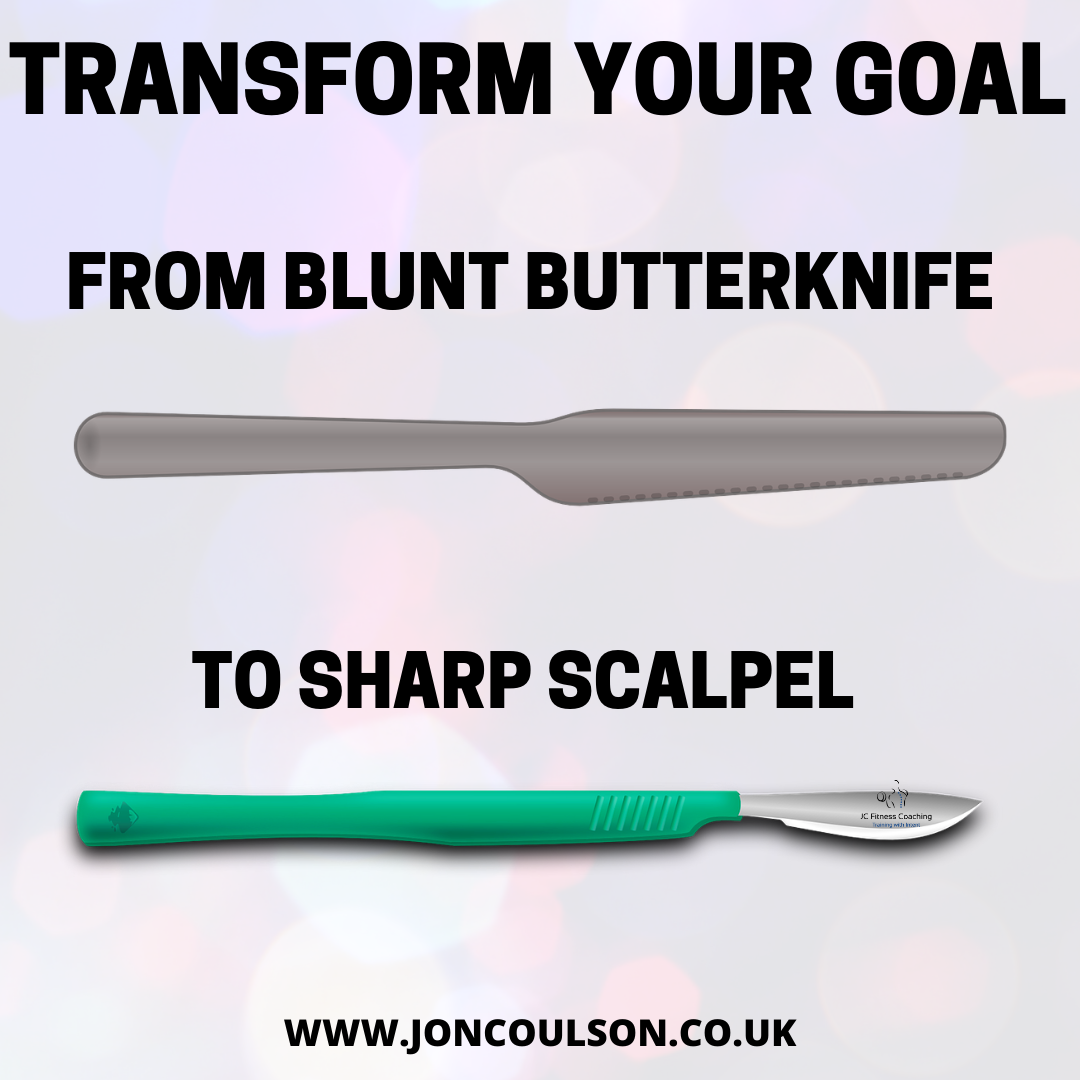
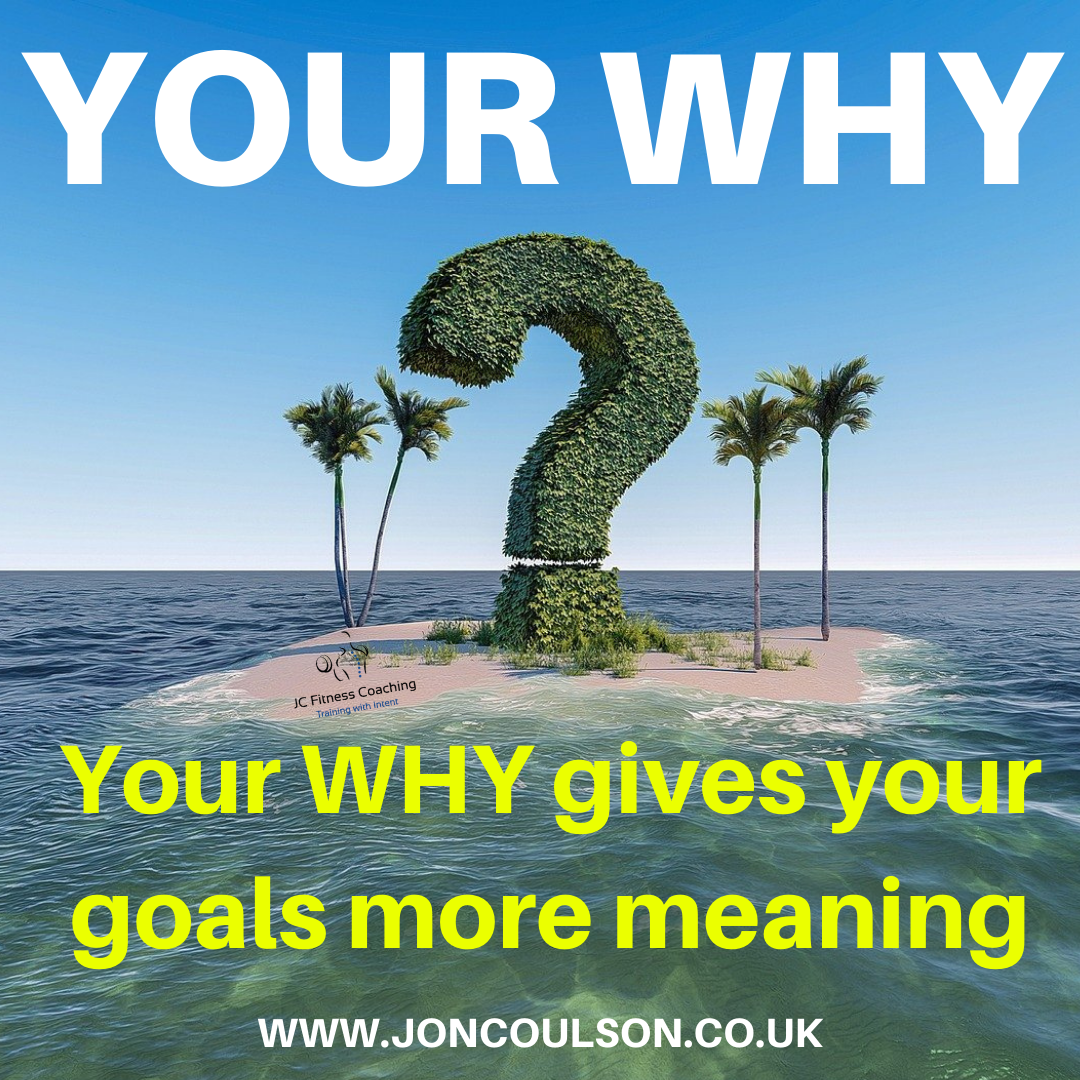
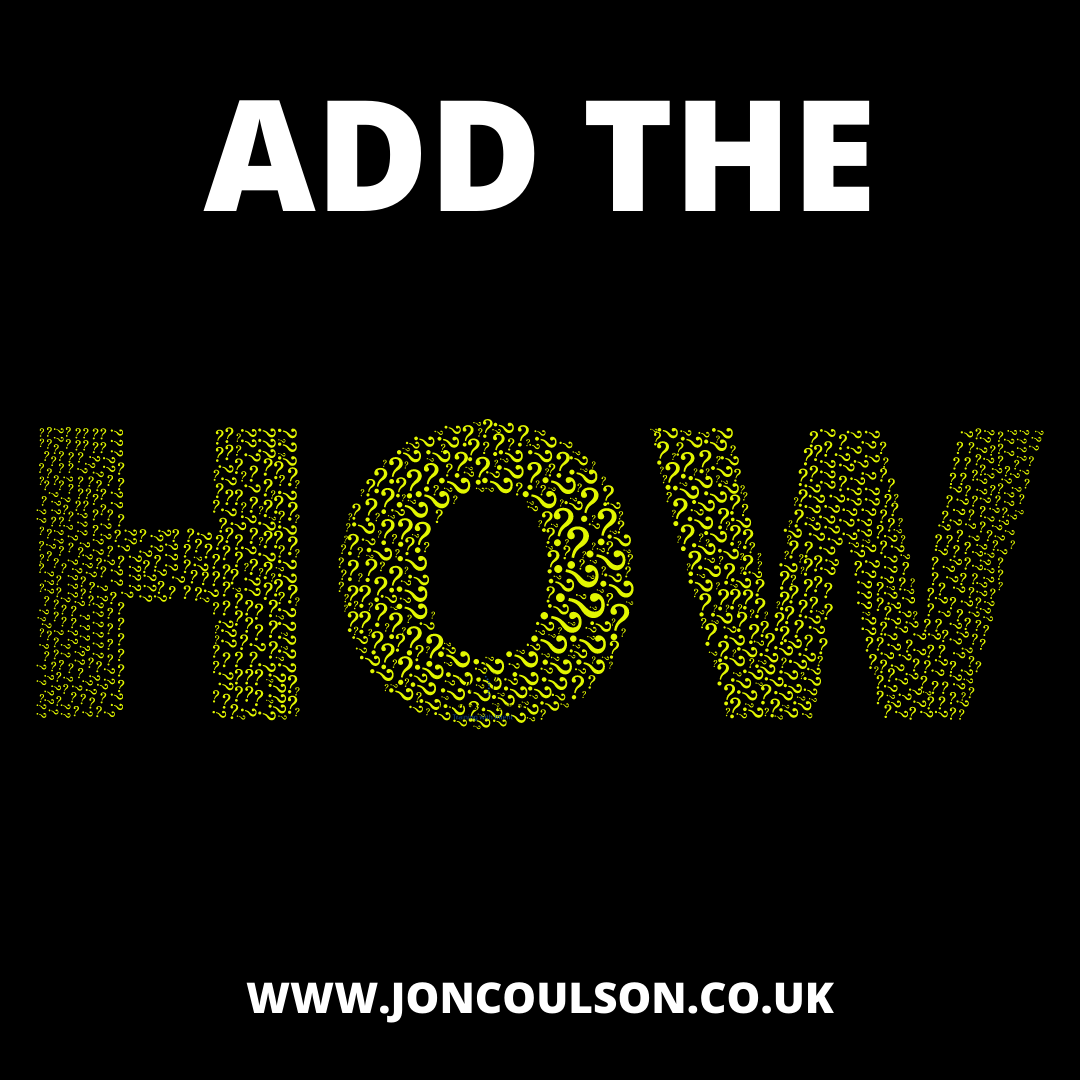
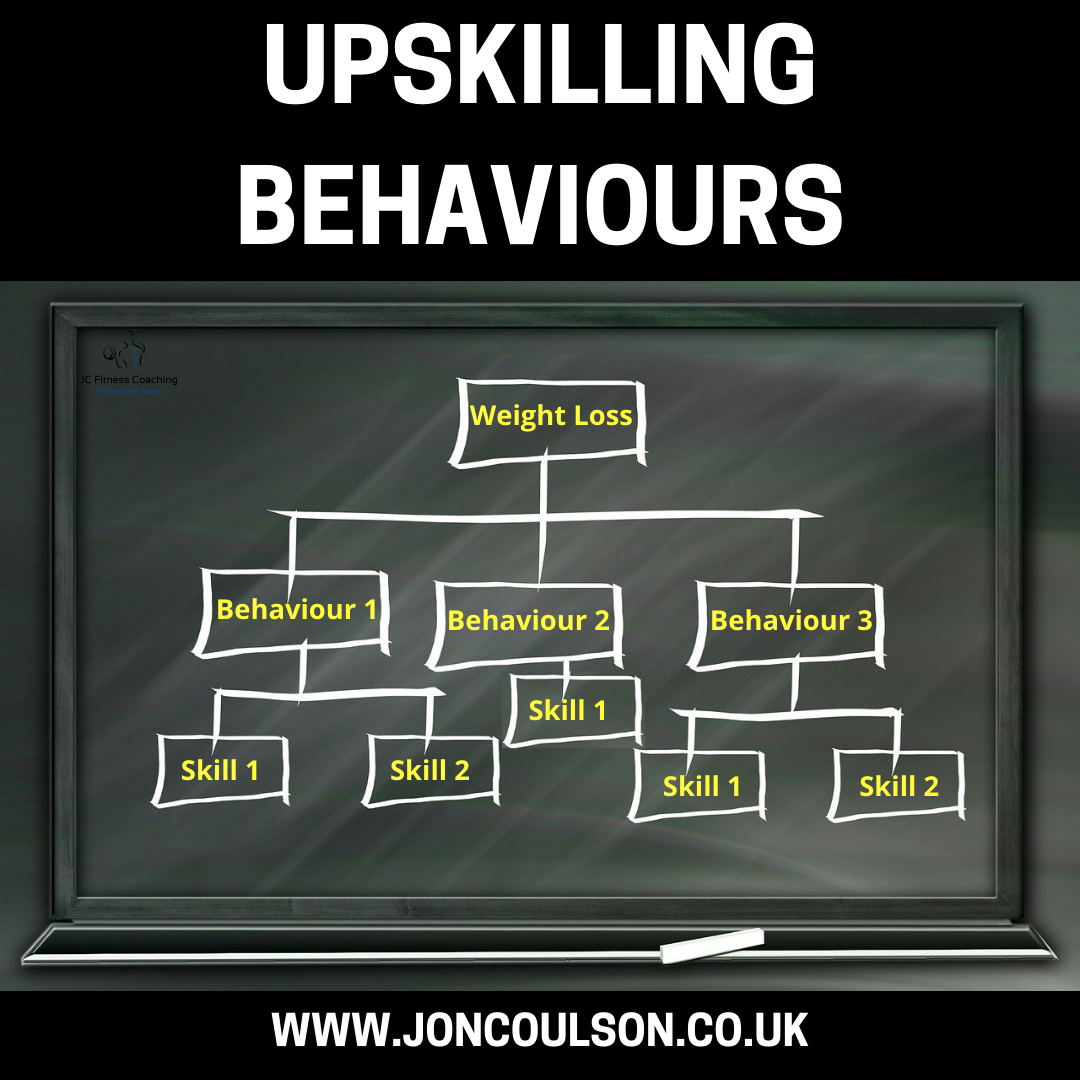
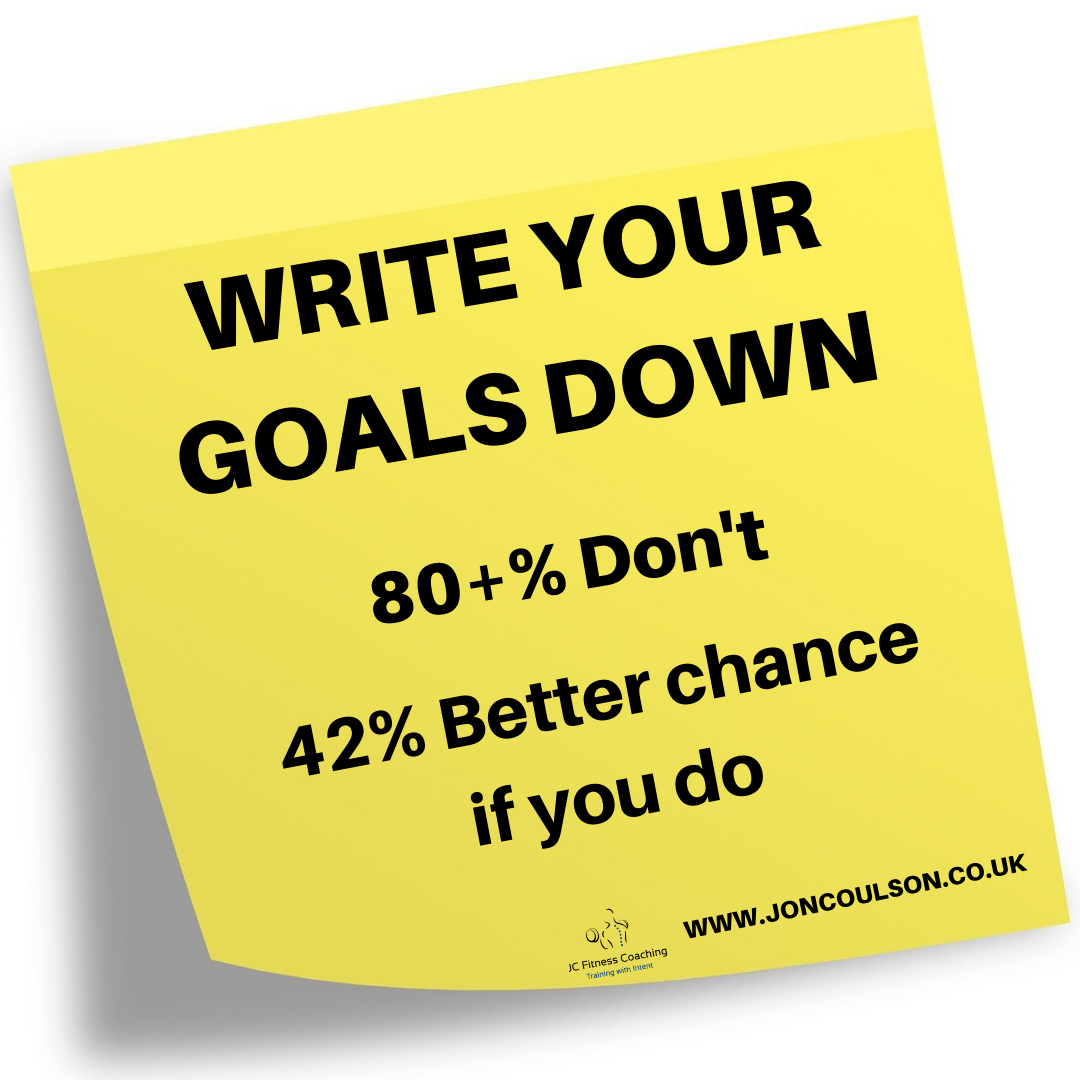
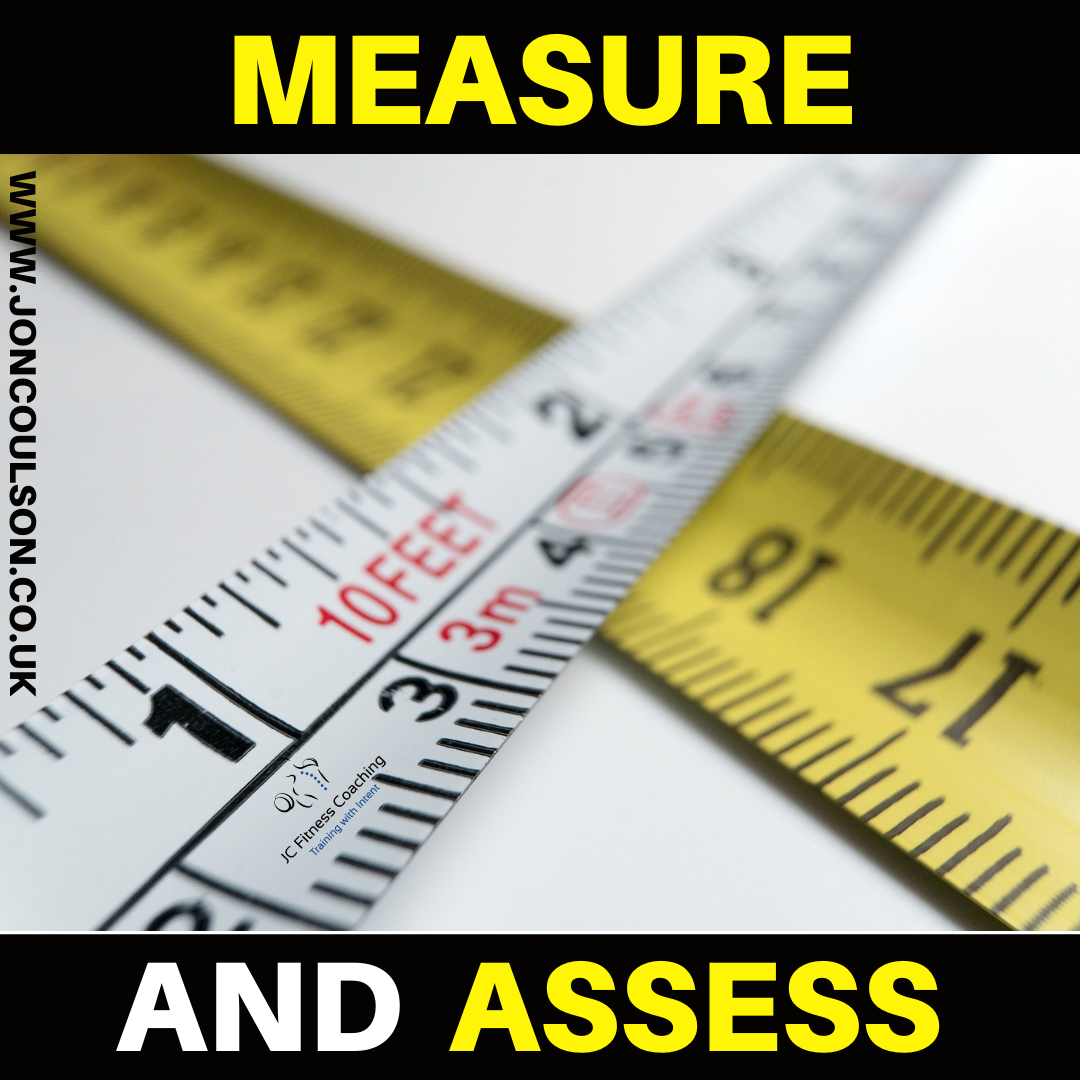
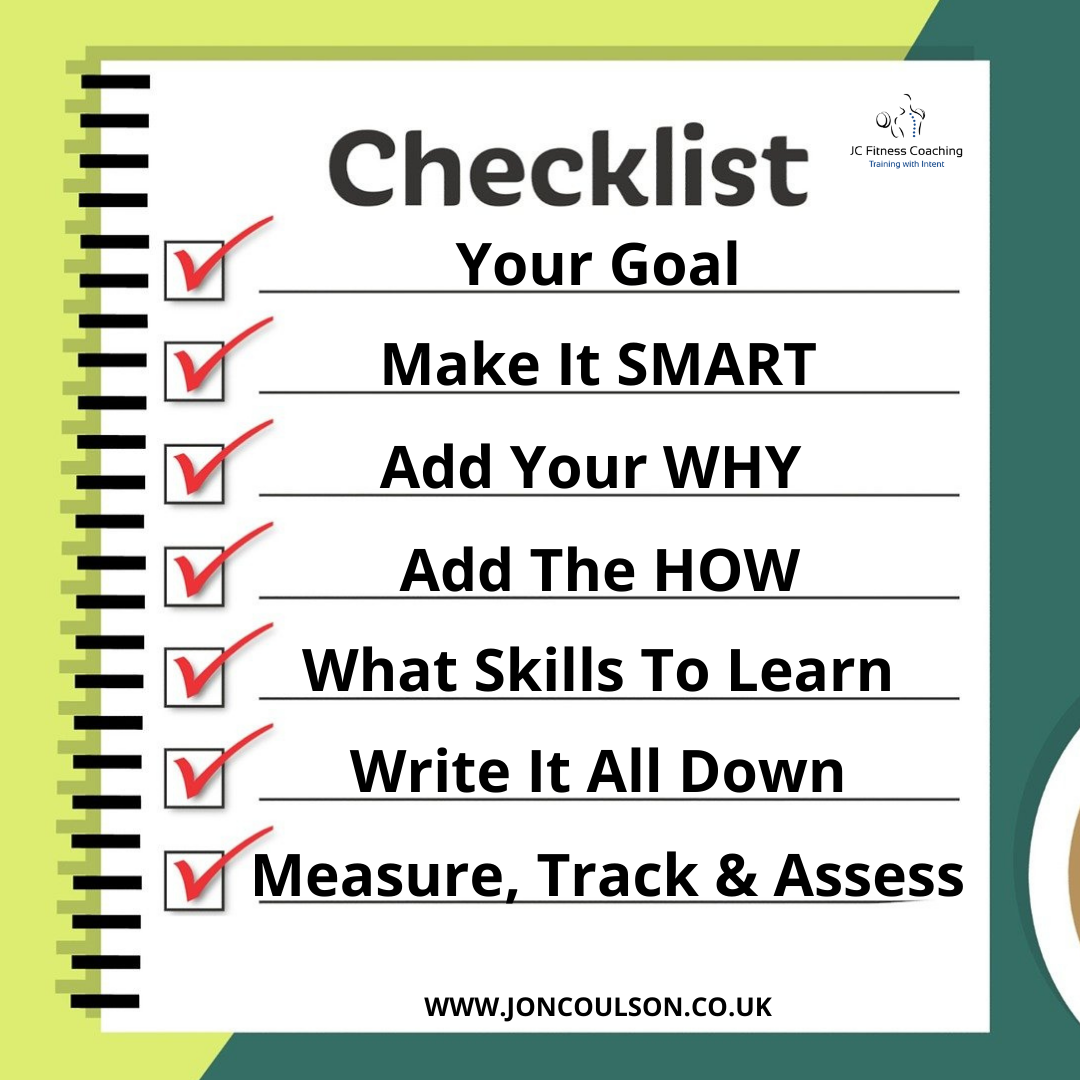
 RSS Feed
RSS Feed